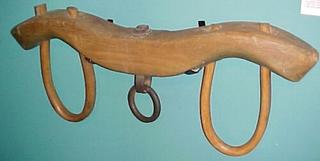FOR MY YOKE IS EASY AND MY BURDEN IS LIGHT.

MY YOKE IS EASY.
The Jews use the phrase 'the yoke of the Torah and the yoke of the Kingdom' to mean submission to the Torah and to the Kingdom. Here it refers to the interpretation of Jesus of the law.
In comparison to the the interpretation of the Pharisees, the teaching of Jesus is quantitatively easier because it is shorter and centered on the essential. However, because of the righteousness demanded in 5:20 (I tell you, unless your righteousness surpasses that of the scribes and Pharisees, you will not enter into the kingdom of heaven.), it is qualitatively more difficult.
I would like to imagine that the yoke of Jesus is easy because the yoke he is talking about is a double yoke, that is, it is for two oxen. It is easier to pull a load when two are working at it. Hence, it is also easier to meet the demands of Jesus because he is helping us meet those demands. He himself said in 5:48 "You must be made perfect as your heavenly Father is perfect." It is not me who makes myself perfect. Yes, I must cooperate with God. But still it is the grace of God working in me.
The Greek word used for 'easy' is 'chrestos'. But it can also be translated as 'well-fitting'. It means that yoke was tailor-made to fit the ox. It would be consoling to think that whatever God sends me in this life is something that I can handle. When Paul complained to the Lord about his illness and asked him to take it away, the Lord told him: "My grace is enough for you." Writing to the Corinthians, he assured them that he "will not allow you to be tested beyond your strength." Indeed, "God will not lead you where his grace cannot keep you."
MY BURDEN IS LIGHT.
In 1941, Father Flanagan was looking at a magazine called The Messenger when he came across a drawing of a boy carrying a younger boy on his back, with the caption, "He ain't heavy Mr., he's my brother." Father Flanagan thought the image and phrase captured the spirit of Boys Town, so he got permission and commissioned a statue of the drawing with the inscription, "He ain't heavy Father, he's my brother."
The Two Brothers concept precedes the magazine illustration that Father Flanagan saw. In 1921, there was a resident at Boys Town who had difficulty walking. He wore leg braces and the other boys would often take turns giving him a ride on their backs. There is a famous photograph of this boy and one of the other youth giving him a ride.
There is another version of the story. One day a man saw a small boy carrying a still smaller boy on his back. The smaller boy was lame. As the they passed by, the man commented to the small boy, "That's a heavy burden for you to carry." The small boy answered, "He's no burden, Mister. He's my little brother."
The point is not that the burden is easy to carry. The point is that love makes the heaviest burdens light.
No comments:
Post a Comment